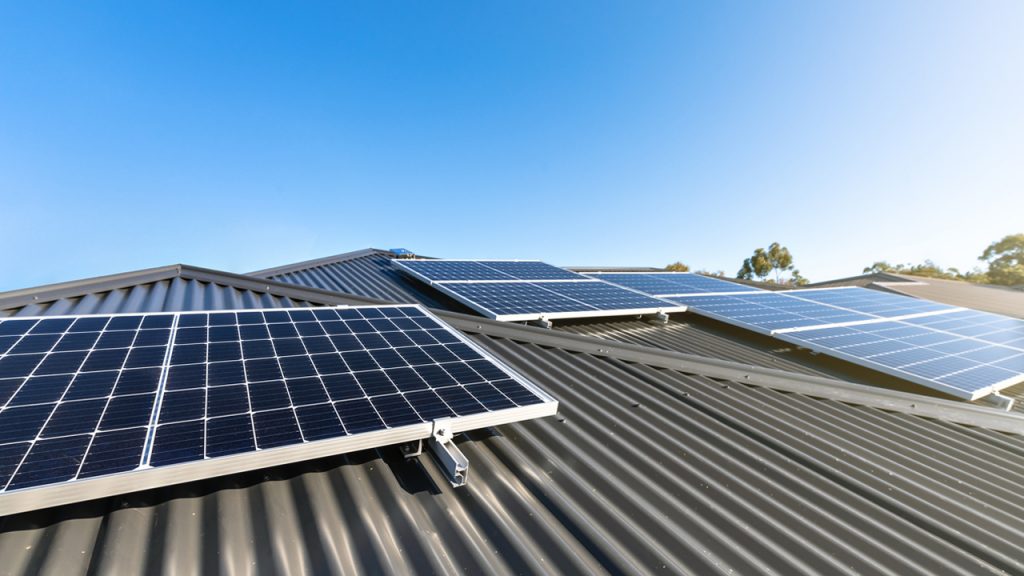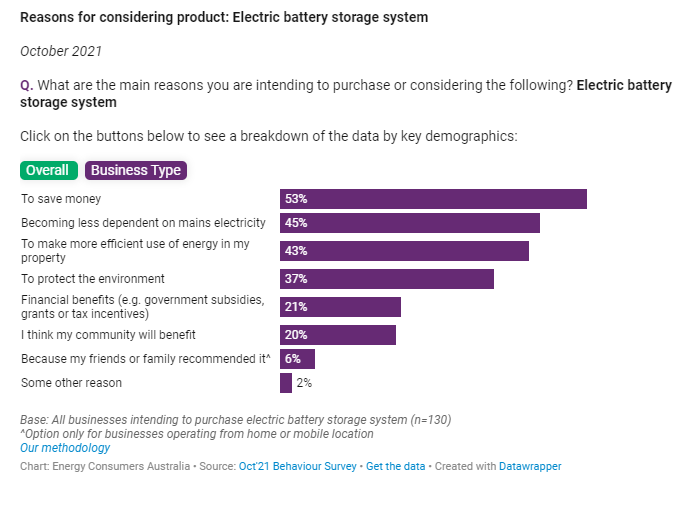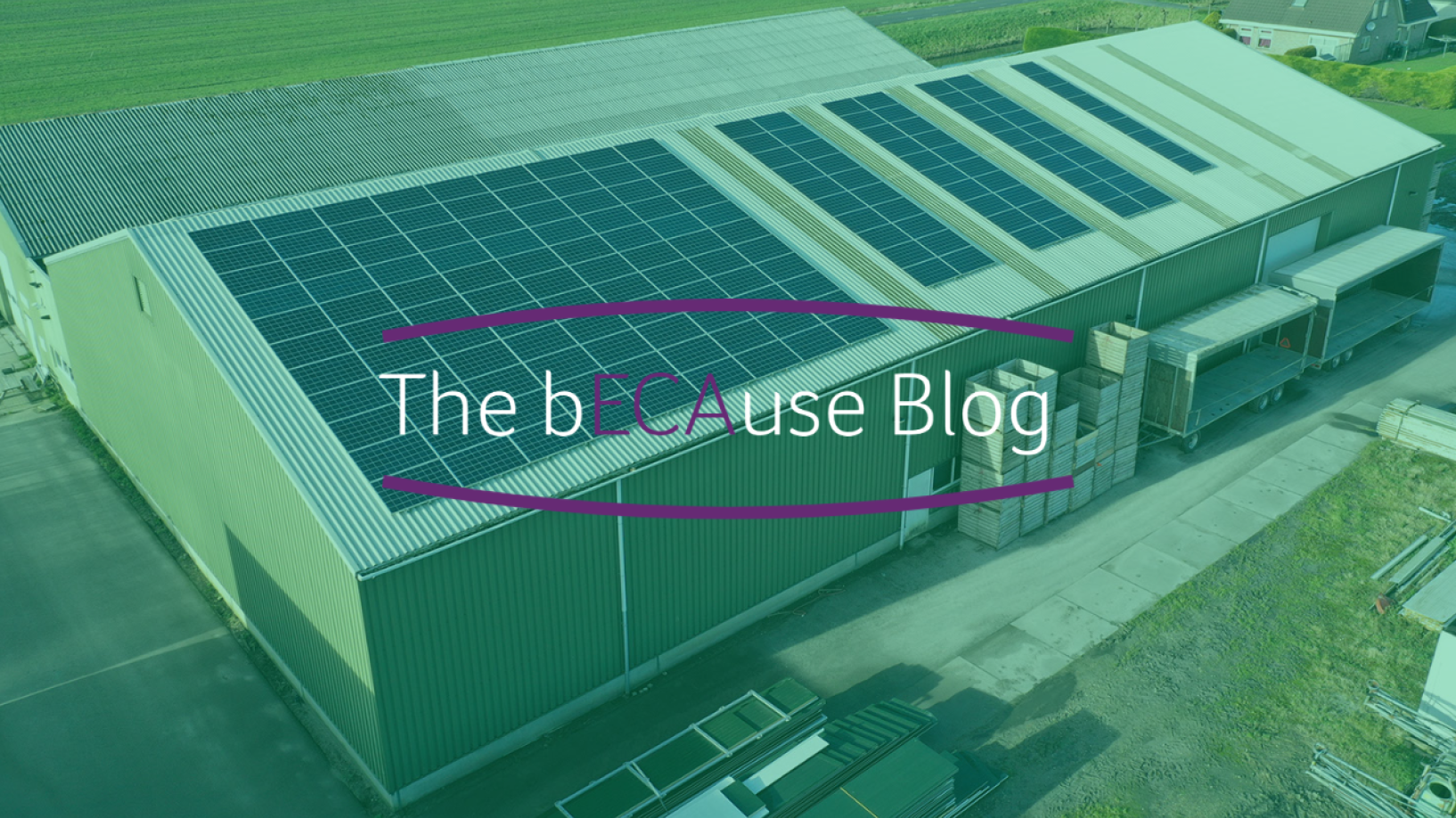It is one of the best-told stories of the energy transition – the rooftop solar revolution that has seen consumers become the largest electricity generator in our system as Australia leads the world in sticking solar panels on our roofs and enjoying the benefits.
But have we missed an unsung hero at the heart of this familiar narrative?
When we think of the increasing interest in solar panels how many of us implicitly picture households as the ones stepping up to lead the charge, installing rooftop solar systems for personal, economic, environmental or other reasons?

How many of us are thinking about the role small business plays in shaping Australia’s energy future?
Our recently-released Energy Consumer Behaviour Survey is the most comprehensive ongoing research study of the attitudes and activity of residential and small business energy consumers in Australia. The study gives us a look into what Australians are doing and planning to do in the future when it comes to their energy use. For those who plan for, operate and regulate the energy system this information can help to illustrate how necessary changes to the way we use, share and distribute energy can be made in ways that mesh with the ways consumers want and plan to live their lives.
Part of that means challenging assumptions, where the evidence shows it is right to do so. And that includes assumptions we might make about residential households being the main or only player when it comes to adoption of distributed energy resources and smart tech.
Who is installing solar/batteries?
Compared to households, nearly twice as many small businesses have installed rooftop solar in the last 12 months (13% compared to 7%). It should be noted that some of these small business operate from home, in fact when it comes to solar installations 13% were operating from home, 11% were operating from a fixed location and 20% were operating from mobile locations.

According to the survey results, small businesses are also more likely to install solar in the future, with 11% indicating they intend to buy in the next 12 months compared to only 5% of households. With the amount of solar owned by households and small business currently very similar (34% and 31%) the results show us that small businesses may have taken some time to jump on the solar bandwagon but they are now leading the charge.
When it comes to batteries, we are seeing similar trends with, 27% of small businesses in the survey indicating they own one (compared to 9% of households). And 10% of businesses in the survey indicate an intention to purchase a battery in the next 12 months compared to only 3% of households.

Electric vs gas
In addition to renewable integration such as solar and batteries, electrification is key to the decarbonisation of our energy system. Replacing technologies and systems that run on fossil fuels with electric alternatives will help to decarbonise the economy and help us get to a net zero energy system.
When it comes to switching from gas to electric 72% of households haven't given it any thought yet. Comparatively we are seeing the idea of electrification well and truly on the radar of small businesses with only 35% saying they haven't given it any thought. We actually see just over a quarter (27%) of small business are seriously consider switching. Is this because of larger gas bills and a desire to save more on their energy costs? Or is it to avoid one set of fixed charges? We can’t know for sure, but we can clearly see interest in electrification from small businesses.
Up for smart?
Over the last few years, we have seen more and more smart technologies come into the market. These have the ability to be automated, offering the opportunity to increase energy efficiency and reduce bills as consumers set appliances to run at times when the cost of energy is lower.
Our survey tells us that small businesses are more likely to have smart appliances and use them to control energy costs. In fact, they were three times more likely to engage in this behaviour (18% of businesses say they have an energy management system and use it control energy costs compared to 5% of households).
We are also seeing a slightly higher interest in smart appliances from small business (58% compared to 42%), and small business owners are more likely to consider themselves early adopters of new technology (14%) compared to households (7%).
What is driving this uptake?
Small businesses are considering implementing different technologies for different reasons, confirming that consumers are far from predictable and there is no such thing as an average consumer.
For instance, when it comes to solar, the top reasons to consider purchasing include to save money, make more efficient use of energy and to protect the environment.

When we look at batteries, the main reasons to consider purchasing are still to save money and make more efficient use of energy but a desire to become less reliant on the mains energy grid makes an appearance in the top three.

This changes again when we look at reasons for considering EV with the most common answer being to protect the environment followed by to save money and make more efficient use of energy.

We saw in our June Energy Consumer Sentiment Survey that four times as many people view affordability as the most important issue for the future energy system, so we can’t underestimate the importance of price. But we can’t lose sight of the other motivators for customers, such as efficiency, self-sufficiency and a desire to protect the environment. Understanding these motivators will ultimately help to better plan policy and regulation to ensure our future system meets consumer expectations, wants and needs.
Why this matters
This is the first ECBS so it is hard to tell if these trends in uptake of renewables and new technology will continue. If we do see small business continue to lead with solar uptake, electrification and integration of smart technologies it will present a great opportunity.
Small businesses often operate at a larger scale than households and commonly have a different load profile. They may use more energy during the day compared to households who tend to use more energy in the morning and evening. That means small business can be valuable when it comes to demand side management as their use of energy during the day can offer a useful counterbalance to the peak demand from households. This load profile can also be beneficial to current solar challenges on the grid, consuming energy during the day when solar energy is readily available.
We are already starting to see this in Western Australia, where a Flexibility Servies Pilot saw 250 businesses modify their energy use and generation to produce flexible megawatts that helped to manage network load and also enabled the integration of other renewables on the grid. This modifying of behaviour included shutting off solar panels at certain times over the weekend in return for financial compensation, as well as moving energy intensive activities to the middle of the day to soak up excess solar being produced.
Only time will tell how big an impact small business will continue to have, but recognising this impact and including small business in the narratives surrounding renewable integration, DER, flexible energy management, and more broadly the spectrum of other consumer costs and benefits associated with the current energy transition is not only important but essential.
